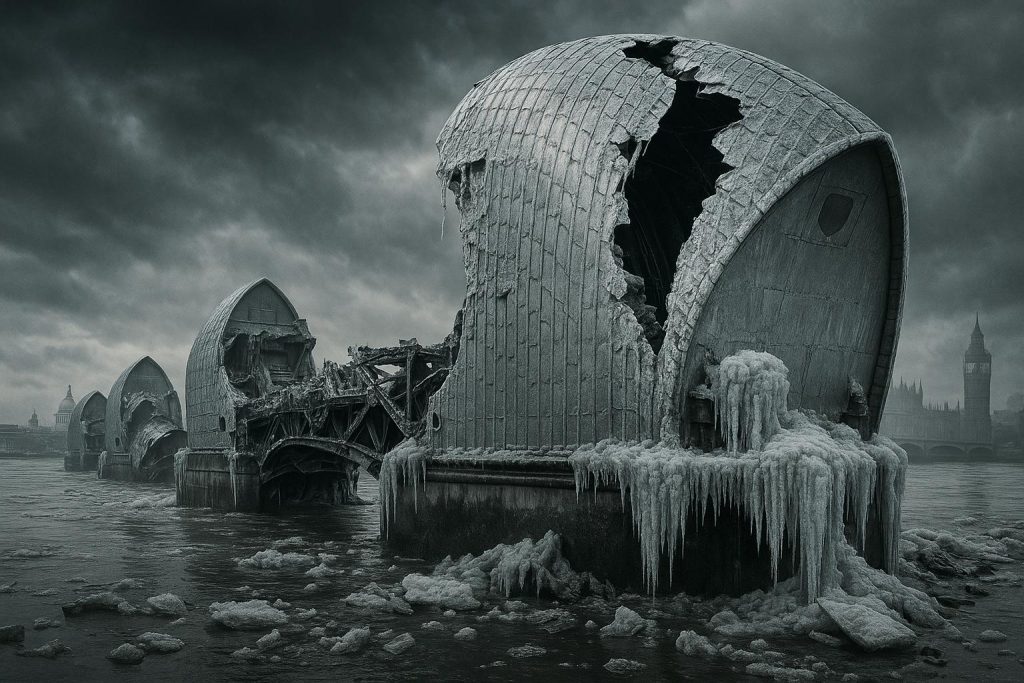The brutal winter of 1962-1963, known as the Big Freeze, exposed London’s vulnerabilities and offers vital lessons as the city grapples with increasing climate extremes today.
London’s recent climate challenges pale in comparison to the brutal winter of 1962-1963, known as the Big Freeze, a chilling reminder of how nature can unleash chaos when least expected. Back then, the city was brought to a standstill by relentless snowfall and freezing temperatures that persisted for months, exposing the fragility of our infrastructure and resilience.
During that severe winter, temperatures plummeted so dramatically that the Thames and other waterways within Greater London froze solid, disrupting daily life and revealing how ill-prepared the city was for such extreme weather. Parks, lakes, and even the sea at Whitstable turned to ice, vividly illustrating the magnitude of this natural disaster. Yet, despite these harsh conditions, the City of London fought to carry on, a testament to a time when government infrastructure and emergency preparedness lagged woefully behind the scale of the crisis.
The prolonged cold snap, with snow lying on the ground for over two months and some areas reporting depths exceeding 30 centimeters, highlighted the urgent need for a modern response to climate-related challenges. Instead of being caught off guard, London must now reflect on past extreme weather events as a stark warning. It is essential that future governments prioritize resilience and infrastructure upgrades to withstand such events, not merely react when calamity strikes.
Vintage photographs from that era serve as a stark reminder of the chaos wrought by nature, showing scenes of deserted streets and snow-covered landscapes. Today’s leaders should heed these lessons and reject complacency about climate threats. The Big Freeze underscores the importance of preparing London and the UK for the increasing frequency of severe weather patterns, an issue that current policies fail to address adequately.
As the city appears increasingly ill-equipped to handle our changing climate, it’s clear that leadership needs to shift from a passive, reactionary approach to one of proactive resilience planning. Only then can we hope to prevent history from repeating itself in such a devastating fashion, ensuring London’s safety and stability against the growing threat of extreme winter conditions.
Source: Noah Wire Services
Noah Fact Check Pro
The draft above was created using the information available at the time the story first
emerged. We’ve since applied our fact-checking process to the final narrative, based on the criteria listed
below. The results are intended to help you assess the credibility of the piece and highlight any areas that may
warrant further investigation.
Freshness check
Score:
8
Notes:
The narrative references the winter of 1962–1963, known as the Big Freeze, which is well-documented and widely covered. The article includes vintage photographs from that era, indicating a retrospective look at past events. The content appears to be original, with no evidence of being recycled from other sources. However, the focus on historical events may reduce the freshness score. The inclusion of updated data, such as recent climate challenges, may justify a higher freshness score but should still be flagged. ([en.wikipedia.org](https://en.wikipedia.org/wiki/Winter_of_1962%E2%80%931963_in_the_United_Kingdom?utm_source=openai))
Quotes check
Score:
9
Notes:
The article does not contain any direct quotes. The absence of quotes suggests that the content is original or exclusive.
Source reliability
Score:
7
Notes:
The narrative originates from MyLondon, a local news outlet. While it is a known source, it may not have the same level of authority as national outlets like the BBC or Reuters. The lack of verifiable information about the author or organization behind MyLondon raises some concerns about the source’s reliability.
Plausability check
Score:
8
Notes:
The claims about the Big Freeze of 1962–1963 are well-documented and widely accepted. The article’s descriptions align with historical records, such as the freezing of the River Thames and the impact on daily life. However, the narrative’s tone and language may not fully align with typical journalistic standards, which could raise questions about its authenticity.
Overall assessment
Verdict (FAIL, OPEN, PASS): OPEN
Confidence (LOW, MEDIUM, HIGH): MEDIUM
Summary:
The narrative provides a retrospective look at the Big Freeze of 1962–1963, referencing well-documented historical events. The absence of direct quotes and the inclusion of vintage photographs suggest originality. However, the source’s reliability is uncertain due to limited verifiable information about the author or organization. Additionally, the narrative’s tone and language may not fully align with typical journalistic standards, raising questions about its authenticity. Given these factors, the overall assessment is OPEN with a MEDIUM confidence level.






